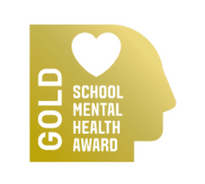Welcome to Biology
Staff
- Miss V Muir (Faculty Head)
- Miss E Aitchison (Pupil Support Manager)
- Miss T Cocozza
- Miss G Ross
- Mrs D Russell
- Miss L Reade
Why choose Biology?
Biology — the study of living organisms — plays a crucial role in our everyday existence, and is an increasingly important subject in the modern world. Advances in technologies have made this varied subject more exciting and relevant than ever. Biology affects everyone and aims to find solutions to many of the world’s problems. It explores the use of genetic modification to produce new plants and drugs, curing genetic diseases and developing new sources of food. The Course will be of interest and value to learners wishing to develop skills, knowledge and understanding of biology.
The Course develops scientific understanding of biological issues and aims to develop learners’ interest in and enthusiasm for biology, by using a variety of approaches, with an emphasis on practical activities.
Biology is an important subject in many careers such as medicine, nursing, dentistry, physiotherapy, food science, sport science, pharmaceutical industry and beauty therapy.
S3
Course
In S3 pupils will follow Biology course as part of a broad general education, covering level 4 Biology outcomes and experiences. During S3 pupils will also overtake some of the National 4 and National 5 Biology outcomes.
Assessment of the Course
The course will be assessed and marked throughout the session by teachers. These assessments are appropriate to the subject and level of study. Assessments may include a combination of practical work, examinations and assignments.
Progression
At the end of S3 pupils will progress to a course leading onto a qualification at National 3, National 4 or National 5.
At the end of S4 pupils could choose from the following progression routes:
- A pupil achieving National 3may progress to National 4
- A pupil achieving National 4 may progress to National 5
- A pupil achieving National 5 may progress to National 5 Lab Skills or Higher
Homework
Homework is an integral part of the course and it is essential that pupils complete this and return on the specified date. Pupils will be issued with homework on a regular basis. Homework will be marked by the class teacher and feedback given to pupils to aid progress.
In addition to formal homework set by the class teacher pupils should be reading their notes on a regular basis and seek support from their teacher if they are unsure of any area of the course.
Equipment
Pupils should take responsibility for their own learning. To help pupils be active in their learning they should come to class prepared with all the necessary equipment e.g. jotter, pen, pencil, calculator etc.
National 3
The National 3 Biology Course focuses on the areas of biodiversity, interdependence, body systems and cells and inheritance. It enables learners to recognise the impact that biology has on their lives, the lives of others and the environment. Learners develop scientific inquiry and investigative skills, scientific analytical thinking skills and the ability to use scientific literacy in a range of contexts.
National 4
The biology department offers a number of courses suitable for a range of abilities and levels of interest in the subject. The diagram below indicates the entry level for each biology course and the possible progression routes.
Please refer to the following pages if you require information about any of the biology courses stated in the diagram above; National 4 Biology, National 5 Biology, Higher Human Biology and Advanced Higher Biology.
The aims of the National 4 and National 5 Biology courses include:
- develop and apply knowledge and understanding of biology
- develop an understanding of biology’s role in scientific issues and relevant applications of biology in society and the environment
- develop scientific inquiry and investigative skills
- develop the use of technology, equipment and materials, safely, in practical
- scientific activities
- develop problem solving skills in a biology context
National 4 Biology Course
Course Outline The course has 4 units of work which are Cell Biology, Multicellular Organisms, Life on Earth and the Added Value unit. It would be advantageous for learners to have a competent level of arithmetic skills.
Cell Biology: Learners study cell structure and processes, photosynthesis, respiration and genetic engineering.
Multicellular Organisms: Areas of study include inheritance, reproduction, health; and control and communication.
Life on Earth: Learners will study evolution, biodiversity, ethical issues, recycling and other related topics.
The National 4 Biology course will be internally assessed by teachers and will not require learners to sit an external exam set by the SQA. Learners will be credited for the units they achieve and their success will be recognised and certificated by the SQA.
National 5
The biology department offers a number of courses suitable for a range of abilities and levels of interest in the subject. The diagram below indicates the entry level for each biology course and the possible progression routes.
Please refer to the following pages if you require information about any of the biology courses stated in the diagram above; National 4 Biology, National 5 Biology, Higher Human Biology and Advanced Higher Biology.
The aims of the National 4 and National 5 Biology courses include:
- develop and apply knowledge and understanding of biology
- develop an understanding of biology’s role in scientific issues and relevant
applications of biology in society and the environment
- develop scientific inquiry and investigative skills
- develop the use of technology, equipment and materials, safely, in practical
- scientific activities
- develop problem solving skills in a biology context
National 5 Biology The key areas studied in each unit are:
Cell Biology
Cell structure; Transfer across cell membranes; Producing new cells; DNA and the production of proteins; Proteins and enzymes; Genetic engineering; Photosynthesis; Respiration.
- N5 CB Homework 10 Respiration
- N5 CB Homework 1 Cells
- N5 CB Homework 2 Cells
- N5 CB Homework 3 Diffusion
- N5 CB Homework 4 Cell Membranes and Diffusion
- N5 CB Homework 5 DNA
- N5 CB Homework 6 proteins and enzymes
- N5 CB Homework 7 enzymes
- N5 CB Homework 8 Genetic engineering
- N5 CB Homework 9 Respiration
- N5 Cell Biology Course Notes
Multicellular Organisms
Cells, tissues and organs; Stem cells and meristems; Control and communication; Reproduction; Variation and inheritance; Transport systems in plants; Human circulatory system; Lungs and the Effects of lifestyle choices on health.
Life on Earth
Biodiversity and the distribution of life; Energy in ecosystems; Sampling techniques and measurement of abiotic and biotic factors; Adaptations, Natural selection and the evolution of species; Human impact on the environment.
It would be advantageous for learners to have a competent level of arithmetic skills.
Assignment
Learners must carry out an assignment which requires them to research a topic of work. This investigation will be undertaken by the learner and the findings will be written up under exam conditions. This element contributes 20% to the final award.
National 5 Certification
The National 5 Biology award is based on the learner’s performance in the final examination and the assignment, both of which are externally marked by the SQA.
Higher Human
Pupils who wish to study Biology at Higher level in Calderglen High will be given the opportunity to study Higher Human Biology. The course is comprised of three units and an assignment. The higher course provides a more thorough understanding of the basic concepts which are covered in the National 5 course and further develops knowledge and understanding, problem-solving and practical abilities.
As a one-year course, the study of Biology at Higher can make an important contribution to the student’s knowledge and understanding of the natural world. The course provides a ground for the further study in higher education of Biology and Biology-related subjects such as medicine, nursing, forensics, physiotherapy, radiology, environmental and food sciences and provides valuable background knowledge for vocational training in many areas of health and technology.
Course Content – 3 Units
Human Cells
In this unit, learners will develop knowledge and understanding of Differentiation, Stem Cells and Cancer Cells, DNA and its replication, RNA transcription and translation, genes and proteins in health and disease, metabolic pathways and their control, cellular respiration and energy systems in muscle cells.
Physiology and Health
This unit covers the knowledge and understanding of reproductive organs and hormonal control of reproduction, the biological control of fertility, ante and post-natal screening, structure and function of the cardiovascular system (heart and blood vessels), cardiovascular disease (CVD), blood glucose levels, diabetes and obesity.
Neurobiology and Immunology
In this unit, learners will develop knowledge and understanding of the nervous system and parts of the brain, memory, nerve cells and neurotransmitters, nonspecific body defences, specific cellular defences, the transmission and control of infectious diseases, and active immunisation and vaccination.
Assignment
In addition to the three course units, learners are required to research a topic of work and the findings are written up under exam conditions. This element contributes to 20% of the SQA final grade.
Higher Human Biology Certification
The Higher Human Biology award is based on the performance in the SQA examination and the assignment.
Advanced Higher
Aims
The purpose of the course is to build on the knowledge, understanding and skills developed by the learner in Higher Human Biology and to provide a useful bridge towards further study of Biology or employment in areas related to Biology.
Course Content
The course is made up of 3 mandatory units:
Cells and Proteins
In this unit, learners will develop knowledge and understanding of protein structure, protein control of cell division, membrane proteins and communication within multicellular organisms.
- AH 2a
- AH 2bi and bii
- AH 2bv
- AH 2c
- AH 2d Detecting and amplifying and enviromnmental stimulus
- AH 2 f ii The Cell cycle
- AH 2 f i Protein control of Cell Division
- AH 2 f ivControl of apoptosis 2fiv
- AH Communication within Multicellular Organisms
- AH Control of Cell Cycle
Organisms and Evolution
Learners will develop knowledge and understanding of evolution, variation and sexual reproduction, sex and behaviour and parasitism.
Investigative Biology
This unit will develop knowledge and understanding of the principles of investigative biology through experimentation and critical evaluation of biological research. In addition, learners will carry out and write-up a research investigation. This contributes to 20% of the SQA final grade.
Advanced Higher Certification
The Advanced Higher Biology award is based on the performance in the SQA examination and research investigation, both of these elements are externally marked by the SQA.








